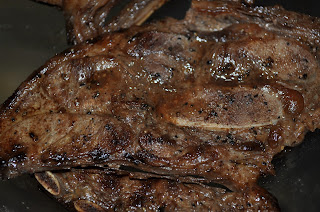IN HOUSE FINANCING
For in-house financing, financing is extended by the company who is selling the property. Under this scheme, there is no transfer of ownership to the buyer until the property is fully paid.
If you are interested in securing in-house financing,
If you are interested in securing in-house financing,
- Gather information about your savings and monthly cash profile.
- Having an idea of your funding resources, estimate what kind of a property you can afford, how much you can borrow, how much you can afford to pay on a monthly basis.
Typical factors affecting evaluation and approval of a request for in-house financing include the following:
- Proof of monthly or periodic net cash inflow
- Size and quality of assets and investments currently owned
- Credit track record (as verified with other bank dealings and the presence of any court cases)
- Purchase of and good payment track record in other Ayala Land properties, etc.
- Tenure with the employer or number of years in business, in case of a professional or an entrepreneur.
An application for in-house financing is typically evaluated within a period of two weeks to one month. This timetable assumes complete documentation and solid evidence presented to support the various factors being used for evaluation. Length of processing may be prolonged by incomplete documents or insufficient evidence of capacity to pay.
BANK FINANCING
For bank or external financing, financing is extended by a bank or financial institution such as Pag-Ibig or NHMFC (National Home Mortgage and Finance Corp.). Under this scheme, ownership of the property is transferred to the buyer. The buyer in turn mortgages the property to the bank. This is typically covered by a Deed of Mortgage.
If you are interested in securing bank financing,
If you are interested in securing bank financing,
- Gather information about your savings and monthly cash profile.
- Estimate what kind of a property you can afford, how much you can borrow, how much you can afford to pay on a monthly basis.
Contact the bank to secure a list of the documents required for bank financing. Ask the bank representative or mortgage officer for clarification on the factors which will affect their evaluation of your financing application. Also gather information on applicable interest rate, term, and processing timetable.
- Typical Checklist Requirements of a Bank
- Pre-processing Requirements
- A. Borrower Information
- Duly accomplished application form
- 2 valid identification cards
- B. Income Documents
- If locally employed
- Certificate of Employment (COE) indicating salary, position & length of service
- Income Tax Return (ITR) for the last 2 years or W2
- If Overseas Filipino
- Certificate of Employment duly authenticated by the Philippine Consulate
- Crew Contract & Exit Pass from POEA (for seafarers)
- Proof of monthly remittances
- Notarized or authenticated Special Power of Attorney (BPIFSB format)
- If Self-Employed
- Articles of Incorporation/By-laws/SEC Registration
- Audited Financial Statements for the last 2 years
- Department of Trade & Industry (DTI) Registration
- ITR with Statement of Assets & Liabilities (SAL) for the past 2 years
- Bank statements for the last 6 months
- List of Trade References (at least 3 names with contact nos. of major suppliers/customers)
- If Practicing Doctor
- Clinic address/es and schedules
- If from Commission
- Vouchers or bank statements (for the last 6 months reflecting commission income)
- If from Rental of Properties
- Rental/Lease contracts (indicating name of tenants & rental amounts with complete addresses of properties being rented)
- Photocopy of Transfer Certificate of Title (TCT) &/or Condominium Certificate of Title (CCT)
- If locally employed
- C. Collateral Documents
- Clear copy of owner's duplicate of TCT/CCT
- Lot/Vicinity map certified by geodetic engineer
- Photocopy of tax declaration/tax receipts/tax clearance
- Endorsement letter/computation sheet/contract to sell from developer stating the contract price (for accredited developer project)
- D. Fees
- Non-refundable appraisal fee of P3,000
- Post Approval Requirements
- Original owner's copy of TCT/CCT
- Certified true copy of the latest Realty Tax Declaration on land and improvements under the name of the borrower/mortgagor
- Original copy of latest Real Estate Tax Clearance
- Health Declaration form (supplied) for MRI enrollment with Ayala Life
- Medical examination with Ayala Life, if applicable
- Fire/Lightning/Earthquake insurance coverage through BPI-MS, if applicable
- Opening of deposit account with any BPI or BPI Family Savings Bank
- For Corporate borrowers, Board Resolution/Secretary's Certificate (form supplied), if applicable
- Four copies of Special Power of Attorney, if applicable.
- Await advice from the bank mortgage officer for any additional documents they may request or for a formal advice of approval for financing.
- Immediately advise your Seller once you have been informed by the bank of the approval of your financing application. Typically, loan proceeds will be released by the bank directly to Ayala Land as the seller. In exchange, Ayala Land will release the proof of ownership (e.g. Transfer Certificate of Title) directly to the bank, upon your endorsement.
BPI Family Bank (www.bpi.com.ph), Banco de Oro (www.bdo.com.ph) , Chinabank (www.chinabank.ph), Metrobank (www.metrobank.com.ph), and Philippine National Bank (www.pnb.com.ph) offer financing for ALI properties. For AVIDA, BPI Family Bank (www.bpi.com.ph) and PS Bank (www.psbank.com.ph) are preferred. A bank directory shall be provided to buyers upon their request
Typical factors affecting evaluation and approval of a request for bank financing include the following:
Typical factors affecting evaluation and approval of a request for bank financing include the following:
- Proof of monthly or periodic net cash inflow
- Size and quality of assets and investments currently owned
- Credit track record ( as verified with other bank dealings and the presence of any court cases) 4. Tenure with the employer or number of years in business, in case of a professional or an entrepreneur.














